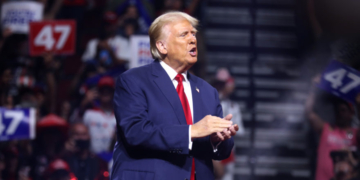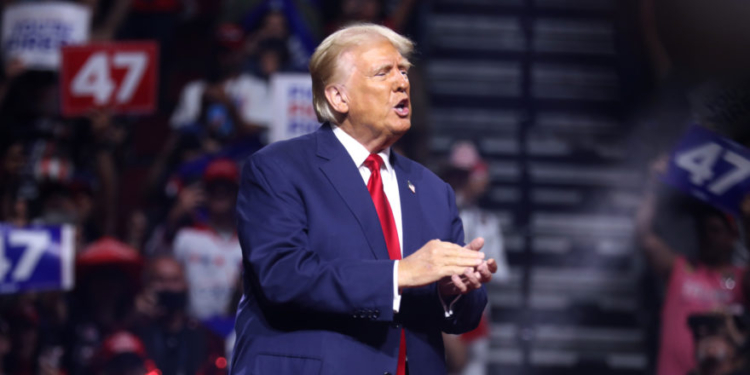Litigation could be a defining factor in the presidential race — or it could mean nothing.
For a number of election-related lawsuits across the country, the stakes are high but the potential impact is unknown. Election law experts say it’s too soon to tell whether any of the recent rulings or pending cases will have anything like a determinative effect on the election.
“It’s mostly wait and see for me,” Derek Muller, who teaches election law at the University of Notre Dame Law School, told the Daily Caller News Foundation.
A Georgia judge blocked on Tuesday a new rule from the state’s election board requiring counties to hand-count ballots.
In another closely-watched case, the Pennsylvania Supreme Court said in an Oct. 7 ruling it would not decide issues related to mail in ballots this close to the election, including a bid to prevent counties from tossing mail in ballots with an incorrect date.
“Any one of these decisions could end up having a substantial impact in the election, or, they could all be meaningless,” election law attorney Audrey Perry Martin told the DCNF, noting the rulings could still be appealed. “However, given how close the polls are this year it is possible, although not likely, that the results of one of these cases will affect enough ballots in a battleground state to be determinative in the Presidential election.”
The bottom line: it’s impossible to know until election day or later. Many issues are yet to be decided, and rulings could still be appealed.
“I expect litigation to be ongoing in the battleground states immediately following the election as well,” Martin said. “This increased election litigation leading up to and immediately after the election appears to be the new normal in Presidential election years.”
Former President Donald Trump now leads Vice President Kamala Harris in all key swing states, according to RealClearPolitics polling averages. But the race is still tight — in Pennsylvania, Nevada, Wisconsin and Michigan, Trump’s lead is under one percent.
“In a very close election that turns on Pennsylvania, lots of fights over absentee ballots might become important,” Muller told the DCNF. “But so far, it’s been pretty ordinary, and rulings in cases like Georgia have been pretty marginal and unlikely to have any material impact on the outcome.”
Hans von Spakovsky, senior legal fellow at the Heritage Foundation’s Edwin Meese III Center for Legal and Judicial Studies, told the DCNF there likely won’t be major rule changes between now and the election. Courts will likely be “deterred by the Purcell doctrine, the principle established by the U.S. Supreme Court that says courts should not make changes in election rules shortly before an election,” he explained.
Recently, the Department of Justice (DOJ) has targeted states for efforts to remove noncitizens from the voter rolls, hitting both Alabama and Virginia with lawsuits for doing so too close to the election. A judge ordered Alabama to stop its effort on Wednesday.
While the litigation won’t have an effect in the two states, where von Spakovsky believes the margin of victory will be much larger than “the number of alien voters in question,” he said the lawsuits are an example of DOJ weaponization.
“[The] DOJ should be helping these states, not attacking them, and investigating/prosecuting these aliens for violating federal law that prohibits aliens from registering,” he said.
The most important battles to watch could be post-election litigation.
“If it is a close election, I expect we will see an explosion of litigation by the losing side, whether it is Trump or Harris,” von Spakovsky said. “That has been the trend since the 2000 election, which generated a huge increase in lawsuits filed over election rules, regulations and practices.”
Featured Image: Gage Skidmore/Flickr
All content created by the Daily Caller News Foundation, an independent and nonpartisan newswire service, is available without charge to any legitimate news publisher that can provide a large audience. All republished articles must include our logo, our reporter’s byline and their DCNF affiliation. For any questions about our guidelines or partnering with us, please contact [email protected].



























 Continue with Google
Continue with Google